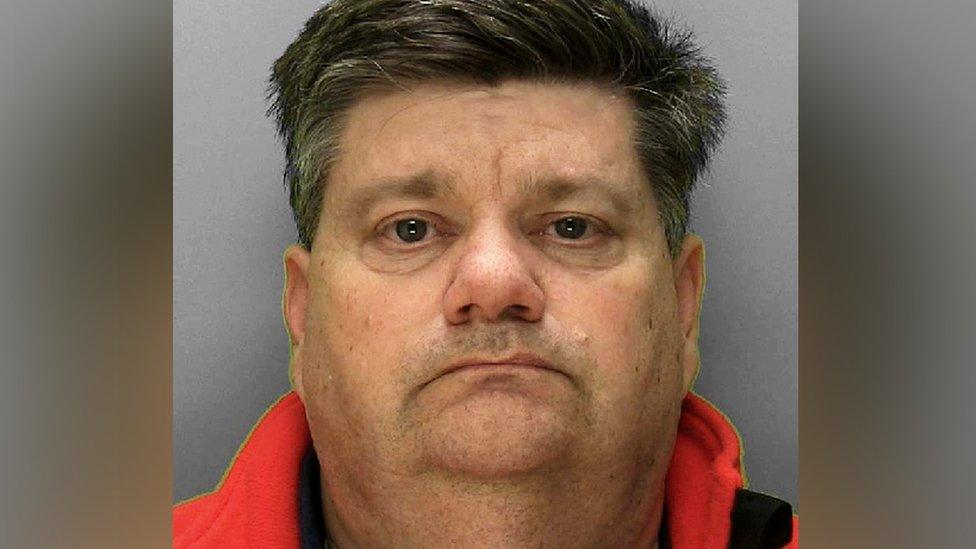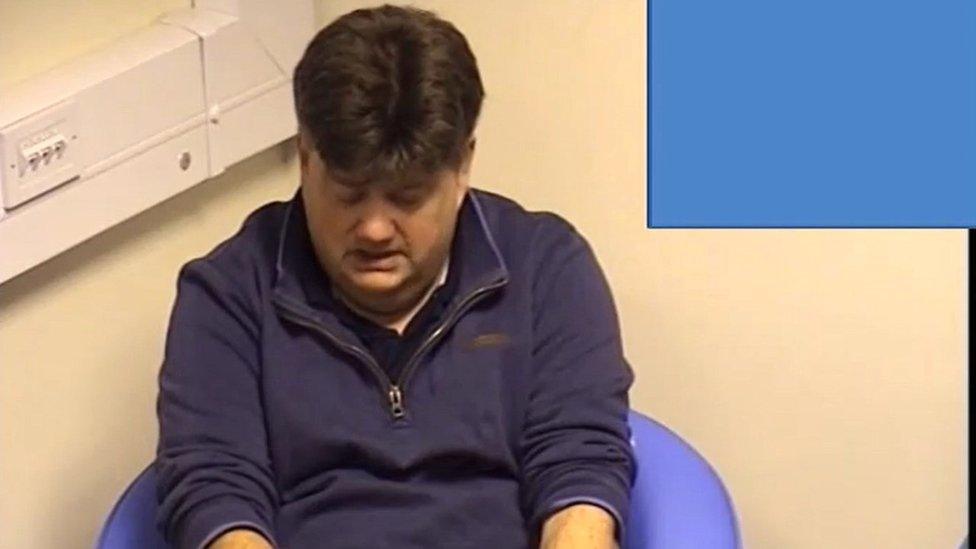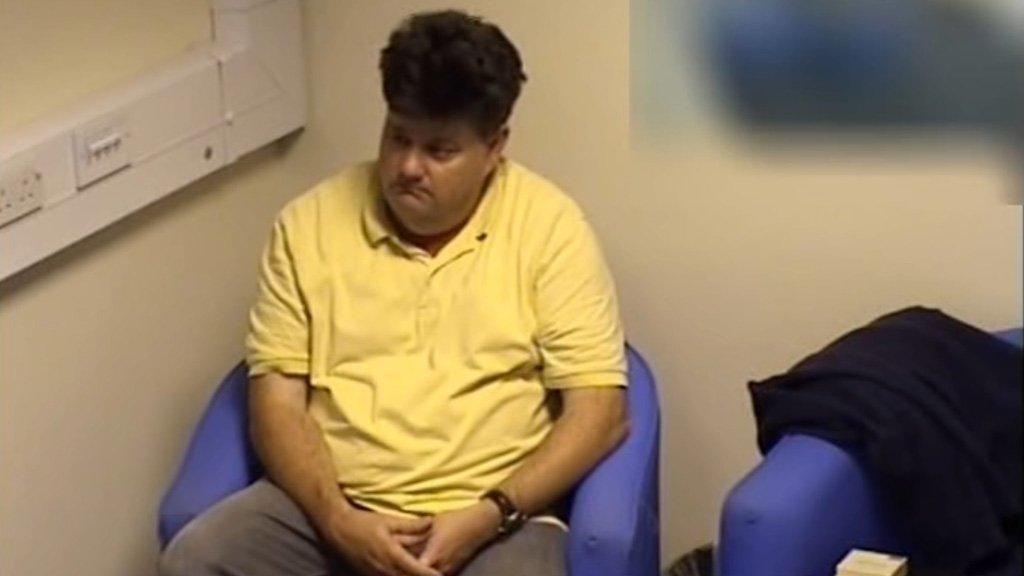Met Police criticised for response to VIP abuse inquiry review
- Published

Carl Beech was jailed for 18 years after making false claims of abuse
A watchdog has criticised the Met Police for being slow to learn lessons, external from a damning review of its probe into a Westminster paedophile ring.
Operation Midland - sparked by false claims made by Carl Beech - cost £2.5m but led to no arrests.
Inspectors said they had been "pretty underwhelmed" by the force's response to a critical review received in 2016.
In response, the Met said it had been "deliberately cautious" due to criminal proceedings and another investigation.
Last year, Beech was jailed for 18 years for inventing false allegations of murder and child sexual abuse by high-profile figures, which led to Operation Midland.
A review by ex-High Court judge Sir Richard Henriques in 2016 into that operation said that 43 police errors were made during the investigation.
The home secretary then asked the Inspectorate of Constabulary - the police watchdog - to inquire into how the Met handled the criticism in that report.
In a report published on Friday, the inspectorate found the force's bosses had been concerned with "restricting access" to the 2016 report, rather than "learning the lessons from it".
'Struggle to find evidence'
HM Inspector of Constabulary Matt Parr said: "We were pretty underwhelmed by the Met's response for the first three years.
"It's pretty clear generally learning lessons from the Henriques report doesn't seem to have been the top priority and it should have been.
"There are claims that they intervened and they changed the training and produced new material, but when we actually started scratching the surface and saying, 'who's had it, what difference did it make?' we really struggled to find any evidence."
The report found that the Met had not done enough to learn lessons in 2016 and had only started acting on some of the recommendations towards the end of last year.
Former Conservative MP Harvey Proctor, who was falsely accused of murder by Beech, described the review as a "devastating criticism" of the Met.
He added: "It looks as though the Met only started to do things once they knew the inspectorate had been commissioned by the home secretary to report on it."
Campaigner warning
The Henriques report had reprimanded the force for believing Beech for too long, and was critical of a senior detective for announcing publicly that Beech's claims were "credible and true".
The latest review said there was a "fine balance" between the need to take victims seriously and the need for "thorough, impartial investigations", but it was "critically important to guard against regression" given the police's track record on crime recording.
It recommended changing guidance for police officers on the "concept of belief" of a victim, to make clear that once a crime has been recorded "any investigation should be conducted impartially to establish the truth".
Harriet Wistrich, director of the Centre for Women's Justice, hit out at these proposals, describing the recommendations as "most disturbing".
She said: "Essentially, because one man made a series of allegations against high-profile individuals which were believed by police officers, all rape victims are to face further hurdles in the process to hold rapists to account."
In its response, the Met said the force had been "deliberately cautious" due to criminal proceedings and an investigation by the Independent Office for Police Conduct.
Met Commissioner Dame Cressida Dick said: "Operation Midland had a terrible impact on those who were falsely accused by Carl Beech.
"The previous commissioner and I have apologised to them and I repeat that apology again today.
"The MPS took Sir Richard's report extremely seriously and quickly recognised that many of the recommendations would affect policing nationwide.
"However, the Inspectorate believe more work should have been done between the initial response and our current renewed focus following the conviction of Carl Beech and the conclusion of the IOPC [Independent Office for Police Conduct] investigation."
That investigation cleared five officers, external involved in the Midland investigation of misconduct, but identified "organisational failings".
- Published3 October 2019

- Published4 September 2019

- Published30 July 2019

- Published26 July 2019
